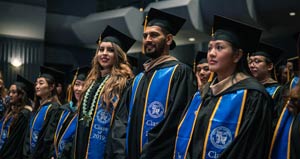Master of Arts in Teaching English to Speakers of Other Languages (MATESOL)
Program Description
The Master’s Degree in Teaching English to Speakers of Other Languages (MATESOL) program produces graduates with the skills to train teaching faculty who excel in their roles as educators, creative scholars, and researchers. This program will prepare teachers for a wide variety of positions both in the US and abroad. Our students will be equipped with the specialized knowledge and field skills for teaching English to speakers of other languages. Upon graduation, they will be competent professional educators with demonstrable leadership skills.
The performance outcomes which are required for the completion of the program include: class participation, response to discussion questions, writing research papers, group assignments, case study analyses, quizzes, mid-term and final examinations (Comprehensive Learning Assessments).









